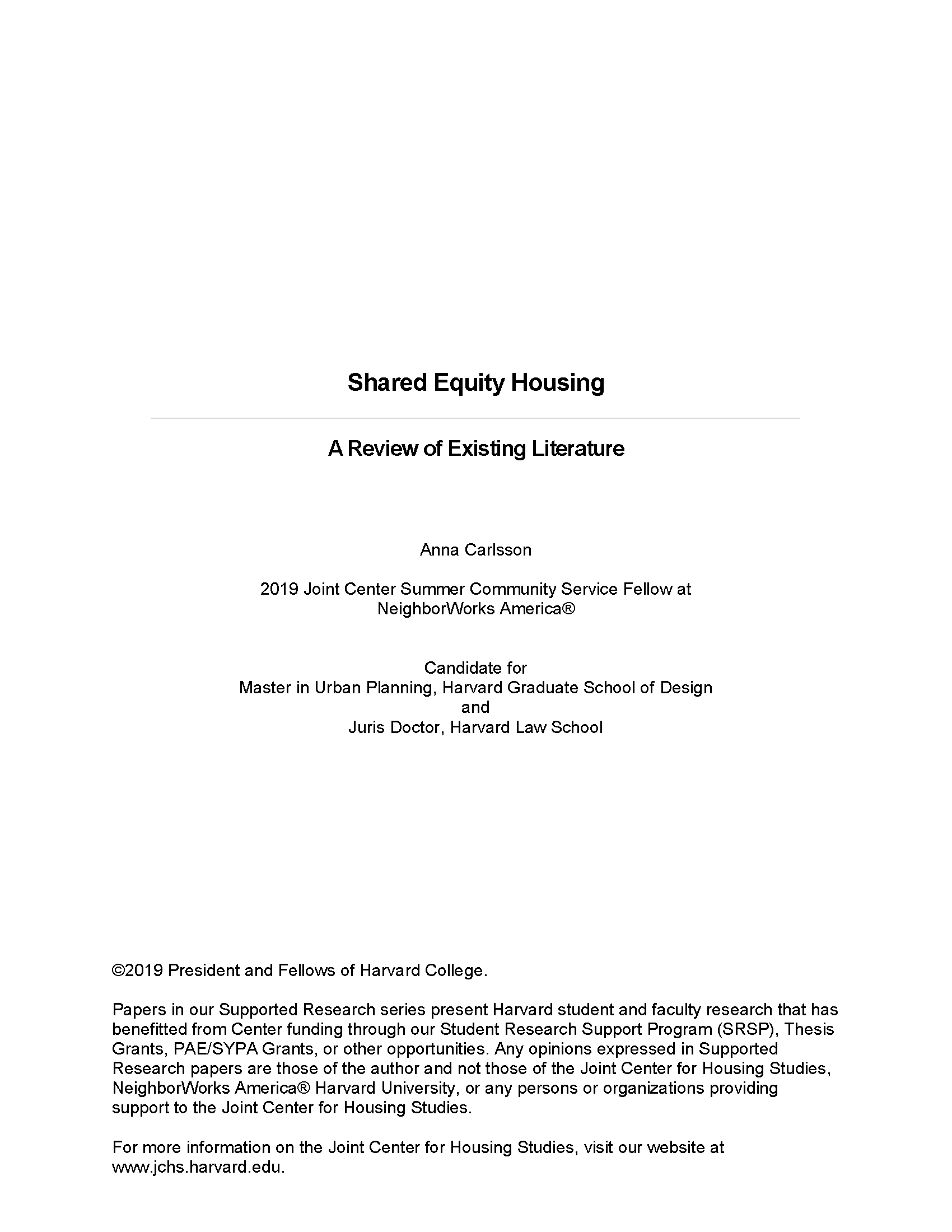Shared Equity Housing: A Review of Existing Literature
This literature review provides an overview of existing literature on the topic of shared equity housing programs in the US. It seeks to identify common elements, benefits, and drawbacks of four shared equity housing models: community land trusts, limited-equity housing cooperatives, deed restriction programs, and resident-owned communities. It further aims to situate shared equity housing in the historical landscape of U.S. housing policy and draw out its role in movements for community control of land and housing. In particular, by enabling stable and affordable homeownership, shared equity housing can serve as a tactic to address racial inequities in access to stable housing and homeownership. The field’s origins in the Civil Rights Movement also offer historical evidence of the role that land and housing can play in supporting movements for racial justice.
NeighborWorks America® undertook this literature review with the support of the Joint Center for Housing Studies as part of a new effort to build the capacity of housing and community development organizations to implement a range of shared equity models. The purpose of the literature review was to situate this initiative within existing research and use its findings to inform program design.

